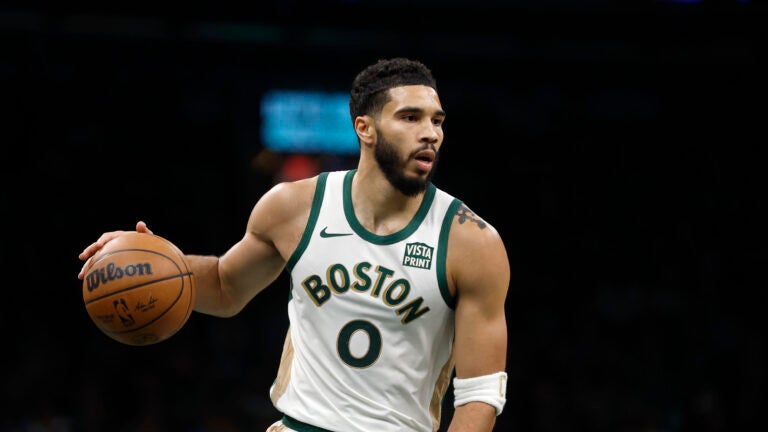For more than two seasons, the Celtics have been perhaps the most skilled team in the league, but they continue to fall short in crucial moments.
Boston was beaten in six games by Golden State in the 2022 Finals, seven games by Miami in the 2023 Eastern Conference Finals, and lost to Indiana in the In-Season Tournament Quarterfinals on Monday despite being the favorites once again.
/cdn.vox-cdn.com/uploads/chorus_image/image/72566517/1490153314.0.jpg)
Worryingly, the Celtics were defeated in all three of those pivotal occasions. They’ve had the same late-game offensive problems for years.
This is where the Celtics continue to struggle when they are winning.
Why are the Celtics falling short in the clutch?

The offense moves too slowly
At the end of their game on Monday, the Pacers and Celtics couldn’t have been more dissimilar in terms of pace.
Part of it was due to gameplan – head coach Joe Mazzulla did not want to get into a track meet and play into the hands of the Pacers. However, as the Pacers raced the ball up the court for quick scores, the Celtics were far too methodical, leaving them with almost no tolerance for error with a short clock.
/cdn.vox-cdn.com/uploads/chorus_image/image/72923563/1825748024.0.jpg)
Boston walked the ball up the court repeatedly, set up its movements slowly, and had 10 to 14 seconds to get a good shot at the hoop.
When trying to defend a lead, the Celtics have far too often used this passive strategy. To make matters worse, they were down for most of the fourth quarter on Monday and needed to pick up the pace to get back into the game. They can’t seem to run their typical offense in the final five minutes of huge games for some reason.
There are just too many Jayson Tatum isolations
Aside from playing slowly, most of the late-game offense centered on getting the ball to Jayson Tatum and allowing him to isolate.
/cloudfront-us-east-1.images.arcpublishing.com/gray/4RAGQGCZ6NN7LAITNTKMUJJABI.jpg)
Tatum is an effective one-on-one scorer and a tough shot creator. According to NBA Stats, he is in the 82nd percentile of isolation scorers. However, the Celtics have a plethora of potent offensive weapons. They can discover better shots to win games than these:
Mazzulla will get the most of the responsibility, but he is attempting to pull his squad out of the mire. With five minutes remaining, he called a play from the sideline that resulted in a dunk for Al Horford. He called a timeout two minutes later after noticing the Celtics’ offense slowed down, setting up a quick-hitter to bring Jaylen Brown another dunk. He can’t, however, call a timeout on every play.
When left to their own devices, the players tend to throw it to Tatum and let him cook.